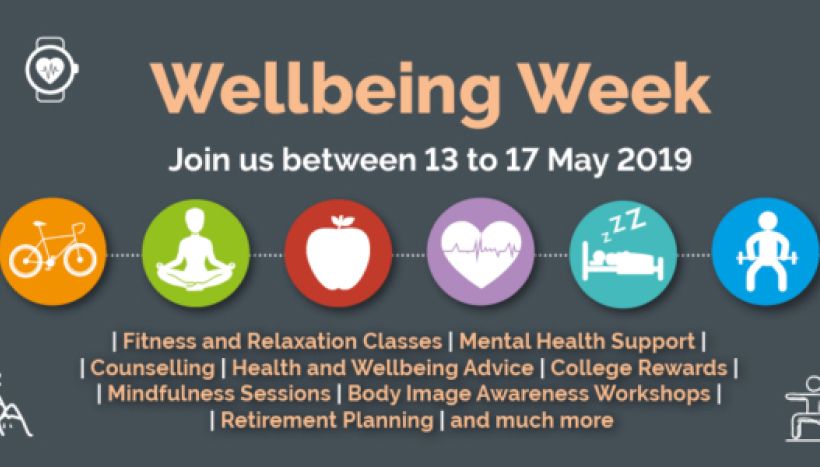Food for Thought - Body Image
16 May 2019

So this week is Mental Health Awareness Week and the theme is body image.
We all have an opinion about our bodies which changes over our lifetime. One thing is for sure though, the higher our body image dissatisfaction the more negative we feel. This can sadly lead to mental health problems including anxiety, depression and eating disorders. The Mental Health Foundation found that amongst teenagers 37% felt upset about their body image and 31% felt ashamed. Most of us don’t give much thought as to why we feel as we do about our bodies, we just ‘do’. However, it is helpful to pause and think about why we feel this way, make the invisible influences visible, question it and reject what is unhelpful. So here are some ideas to take into your day to try to be a little bit kinder and gentler with yourself.
List your positive qualities and try not to compare
We are awash with perfect images of perfect bodies on social media, advertising, in the music industry and on the telly. All airbrushed and filtered to within an inch of their life! It’s easy to slip further and further into self-criticism and a feeling of not being good enough. Make a point of listing all the things you do like about yourself. Notice and remind yourself often of the areas you like. If you want to you can try to admire these parts in the mirror. It can seem odd and alien at first to be positive about yourself but stick with it. It is NOT big headed or boastful, there is nothing wrong and everything right with self-positivity.
Find healthy role models and remove negative ones
Amongst the airbrushed perfection out there are many bloggers, influencers, singers, artists, sports people, political and social activists, celebrities etc. that refuse to conform to the ‘perfect’. They celebrate themselves, they accept themselves. Seek them out, read their interviews, follow them on social media. Focus on that narrative that liberates us to be ourselves, in our many shapes, sizes and hues. There is not one size fits all when it comes to human beings. So let’s start rejecting the perfect narrative.
Be realistic
If you went to a swimming pool you’d see a huge selection of different bodies, faces and hair types. None would be ‘perfect’. It’s good to remind ourselves that we all have mottled skin, spots, wrinkles, curves and marks. This is the reality of bodies and faces. Let this information help you set more realistic expectations about yourself.
View mistakes as lessons
We can all get into negative mental habits sometimes. Being critical of our bodies may also be a part of a wider pattern of self-criticism. Maybe today you can give a little bit of space to consider this. Self-criticism can only lead to a feeling of not being good enough. But I am here to tell you that you are good enough. And yes you mess up and get it wrong and yes you also do well and get it right. That’s just being human, that’s just life. I mess up and make mistakes just like you do, as we all do, and you know what, that’s okay. We can look at our mistakes as an opportunity to learn. Ask this question – how would I deal with that better next time? Consider your answer, be pleased you have learnt something of value then let yourself off the hook and move on.
Remember this: you are so much more than your body. So much more. Your humour, your empathy, your friendship, your curiosity, your critical thinking, your morality, your motivation, your courage, your laughter, your endurance – I could go on and on with this list!! Try not to be defined by your body image and stop and take a moment to consider how you can make some small changes to improve your sense of self and self-worth. Everyone has a right to feel comfortable in their own body. Take care of yourself. You deserve it.
-----------------------------------------------------
If you feel you could benefit from Counselling or mental health support please contact the Leicester College Counselling and Mental Health Team.
Your tutor, mentor or other staff member can refer you or you can self-refer by text/call the Counselling service directly on 07827 233705 or email counsellingadmin@leicestercollege.ac.uk. Alternatively you can call our Student Services Team on 0116 224 2240.
Other sources of information and support include mind.org.uk, youngminds.org.uk, Kooth.com, your GP, Lets Talk- Wellbeing Leicester.
If you feel you or someone else it at risk please talk to a trusted adult, Samaritans 116 123 or Emergency services 999, or Leicester College safeguarding team 07825 175 729 / 07917 370 304